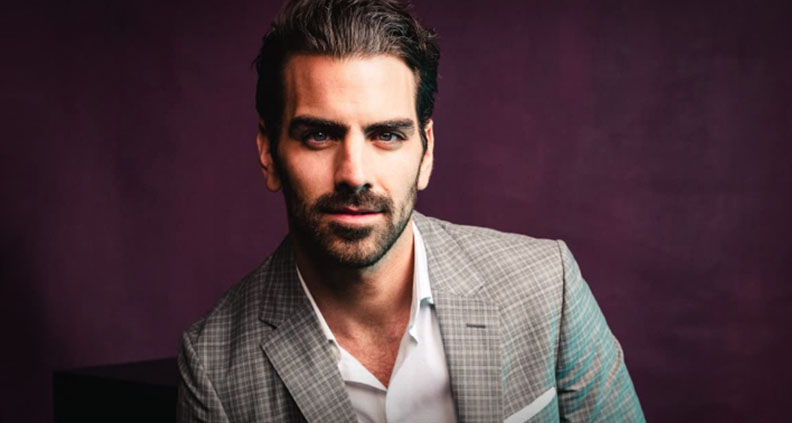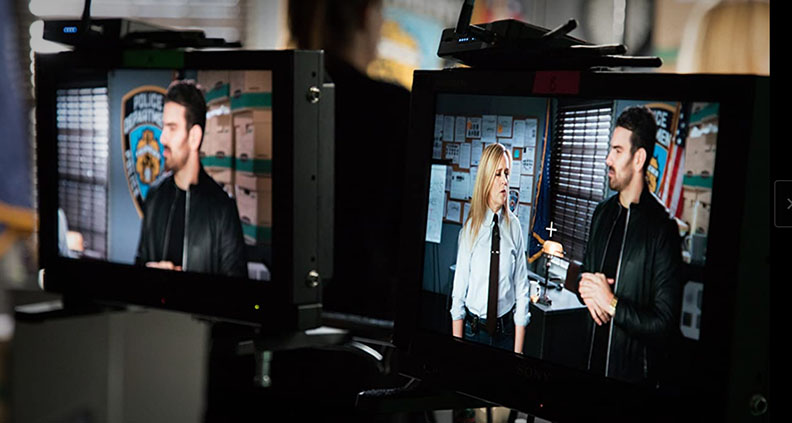Interview: Media Access Awards Host Nyle DiMarco Preps for Thursday’s Big Event
When considering which demographic groups are most starved for more equitable and inclusive media representation, it’s hard not to acknowledge the fact that the Disabled community has, historically, been woefully underserved. Disabled people—an expansive tent that encompasses a wide range of physical and neurological conditions, both inherited and acquired—are, after all, the world’s largest minority group and, uniquely, the only minority group that anyone can join, suddenly or progressively, at any point in his or her life.
And while Hollywood has made great progress in these areas in recent years, it still requires the dedicated effort of countless creatives, advocates and industry allies to help boost the profile of the Disabled community contributions within the entertainment world. Enter the Media Access Awards, which through its yearly awards ceremony seeks to recognize and honor depictions of onscreen disability that are accurate, inclusive and multi-faceted.
This year’s Media Access Awards—presented by Easterseals—will be taking place virtually on November 19 (Thursday!) at 6pm PT/9pm ET at mediaaccessawards2020.com. The 2020 show will be hosted by actor, model and spokesperson Nyle DiMarco—a longtime advocate for deaf and disabled rights in Hollywood and beyond.
We recently spoke to DiMarco (via ASL translator)—a former Dancing with the Stars contestant, among other credits—to talk about the awards, disabled representation and what it means to have someone from the community host the event.
NYLE DIMARCO

To start, Nyle, I know you’re very politically active both within the deaf community and otherwise. How do you feel now post-election?
DiMarco: I’m definitely relieved. I have high hopes for Biden. I’m hopeful we’ll see more of my own deaf friends who are working toward legislation actually be able to find time at the table with our President-Elect, which feels really great.
So tell us a little bit about the Media Access Awards. What should people know about this event?
DiMarco: Sure. It’s the world’s largest ceremony to specifically celebrate the representation and depiction of people with disabilities in film, TV and other sorts of media. It also encourages the work we’re doing in the entertainment industry toward hiring more people with disabilities—performers with disabilities and people with disabilities both in front of and behind the camera. It really does provide this great pressure on Hollywood and the entertainment industry.
What was your reaction when you were asked to be this year’s host?
DiMarco: I was thrilled—I’ve never hosted an awards show before. I’ve always loved the idea of hosting. It’s a very different category to kind of create more visibility for the deaf and disabled community. And of course I don’t speak, which is an added layer to the hosting abilities. I work in a visual language, so people will hear a voiceover and see the captions, which in and of itself is a challenge. But I do love it for a lot of reasons, mainly because I’m incredibly honored to be doing this. I hope I don’t flub it! [laughs]

In the past, the awards have had people like Jimmy Kimmel host. But how important is it to have someone from the disabled community representing the organization this year as the emcee of the event?
DiMarco: I think it’s very important. It also sets the bar really high as a brand and how we see them [Easterseals] really doing the work. They’re keeping a great eye on the entertainment industry and looking for hosts within the disabled community. I think just finding a celebrity to host, it may not have that same sort of connection—someone able-bodied who they might find who isn’t connected in the same way with the type of work they’re looking to push.
Which is more difficult, Dancing with the Stars or this?
DiMarco: Oh, definitely Dancing with the Stars. [laughs]
I figured.
DiMarco: Physically, of course. I’m in a little bit of an advantage now, in that we’re in a pandemic and thankfully things are being recorded. So I’m lucky to have a teleprompter here that I’ll be able to use as a guide, and that the stage and the audience have sort of been removed.
What will the awards look like this year? And more importantly, how can people watch?
DiMarco: The awards are going to function the same way, just virtually. We’re now working in a completely remote environment. I would say essentially the show is not changing; it’s just a matter of where the audience is sitting. We’ll be streaming—I believe there’s a link going out, so be sure to watch.
The show you were in, This Close, which was honored at the Media Access Awards in 2018, correct?
DiMarco: Yes, it was the first TV show that was created, produced and led by two deaf creators—Shoshanna Stern and Joshua Feldman. I believe it was two years ago we were lucky enough to be honored. Recognition is so important. So many of us in the community and the content we’re creating in continuing to be overlooked. We want to see more successful content and we want to see more celebrities joining in and really amplifying the voices of the disabled community, and it’s a pleasure to be able to work as organizations to do that. It’s so thrilling to see people be able to come together and create content that is incredible.
What has been the biggest difference in your career—as far as how things were when you first started as opposed to now—in terms of ease of access and representation?
DiMarco: Compared to five years ago, there’s quite a big difference. We’re seeing a lot more visibility for American Sign Language. A lot more movies and TV shows are working to bring in ASL, which is fantastic. Our next push is to actually hire deaf people in those roles, people who use the language every day. It’s an uphill battle. We really want to see an end to hearing or able-bodied people playing characters they don’t actually represent. Essentially, we don’t want to see actors faking it, which is the next big step—providing more content and putting the responsibility on Hollywood to hire those people for those roles.
Who are some of your biggest influences as an actor or a performer?
DiMarco: I’d probably say Shoshanna Stern, who’s a close friend and an incredibly talented actress. We’re similar in age, and I do feel she’s been able to give me such incredible advice in navigating Hollywood and my acting journey. There are so many actors out there I look up to—too many to name. And hopefully in 20 or 30 years, we’ll have even more people standing in positions like that, especially in the deaf community.
What sort of advice did Shoshanna give you? And what sort of advice would you pass along to other deaf actors starting out in the industry?
DiMarco: It was mostly advice on how to navigate situations on set and how to work within translations of the script. Working from English to ASL within a script translation is a lot of work. A lot of people assume that a translation might be the same, but it depends on your perspective, your cultural background, your experiences. When working on set, a lot of questions arise that often remain unanswered, like do I hire an interpreter? Who pays for the interpreter? How do I approach that person? There are a lot of layers to it, and she [Shoshanna] was incredibly helpful in making the experience more accessible.
Last question: who are some of your favorite awards show hosts of all time?
DiMarco: Another tough one! [laughs] I don’t know if I could even choose a host, to be honest. I almost never watched awards shows growing up, until about five years ago. Coming into the industry, of course, my job requires me to watch awards shows, and I do enjoy them. But for the longest time I didn’t really watch.
That should work to your favor—you’ll be coming in completely fresh!
DiMarco: Absolutely! [laughs]
The 2020 Media Access Awards, streaming live and hosted by Nyle DiMarco, are happening this Thursday, November 19, 6pm PT/9pm ET at mediaaccessawards2020.com. See highlights from past years below:
Film Independent promotes unique independent voices by helping filmmakers create and advance new work. To become a Member of Film Independent, just click here. To support us with a donation, click here.